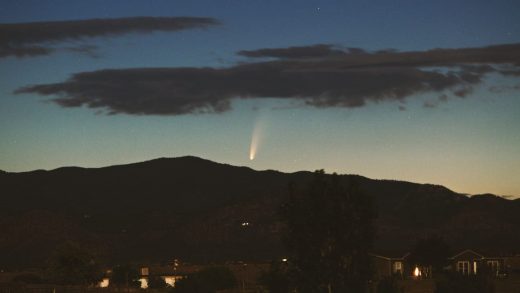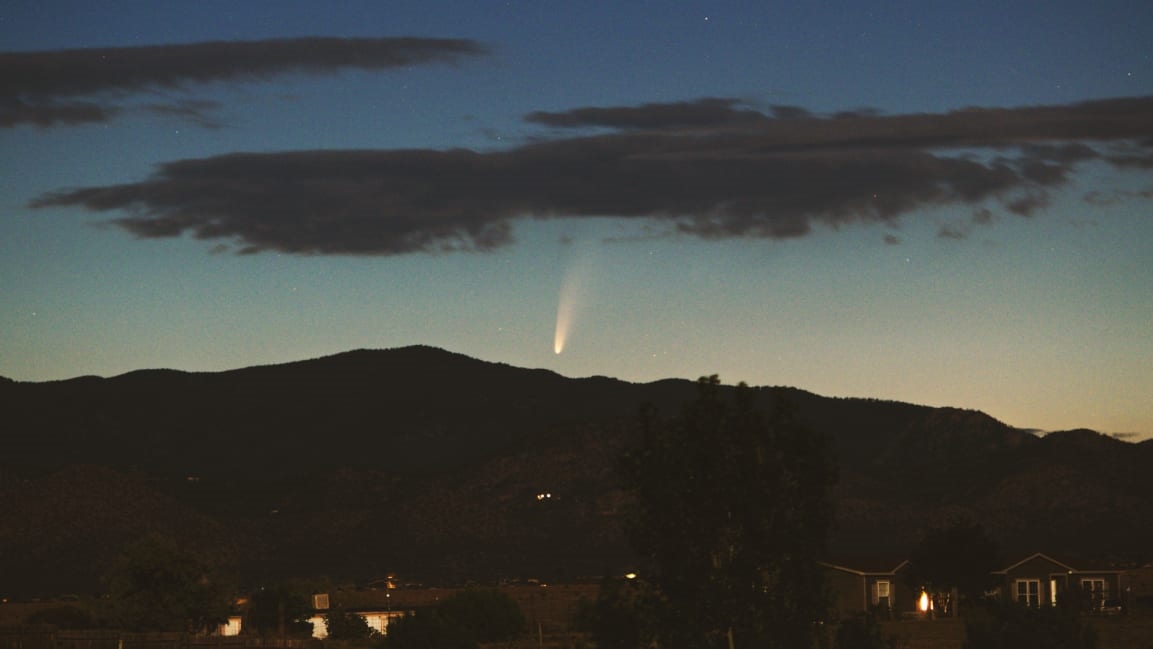How and when to see the rare NEOWISE comet this month
A new comet is making its way across the sky this July, and if you’re in the right place at the right time, you might just catch a glimpse.
The comet is known to NASA researchers as Comet C/2020 F3, but it was fondly dubbed NEOWISE after it was discovered by the NEOWISE satellite in March. At that time NEOWISE, which is essentially a giant iceberg shedding a tail of gas, dust, and ice, was hurtling toward the sun, and now, after surviving its loop around the sun, it’s heading back toward Earth on its way to the outer solar system.
And after brushing the sun, NEOWISE has brightened to a level equivalent to the stars in the Big Dipper, making it one of the few comets of the 21st century that is visible to the unaided eye, and also one of the rare few with a long, visible tail. Photographs of NEOWISE have already been snapped in countries spanning the globe, from Switzerland and France to Israel and Lebanon.
How and when to see it
- Right now: Currently, the comet can be seen at dawn in the northeastern sky, appearing very low on the horizon, only one or two degrees above the horizon line.
- On July 11, the comet will reach its highest point on the horizon, about 10 degrees above the horizon line, at dawn.
- After July 11, the comet can be seen at dusk in the northwestern sky, initially appearing low on the horizon, but climbing higher in the sky as the month continues.
- On July 22, the comet will reach its closest approach to Earth, which is expected to be prime time for viewing.
- On July 25, the comet will reach an altitude of 30 degrees above the horizon line at dusk.
The comet is expected to be visible through the end of the month. However, as is the nature of giant icebergs shooting through space, NEOWISE could break apart or burn away at any time, so get out there early for a sure spotting!
Here’s what to look forward to:
A stunning capture of Comet Neowise, from southern France (July 16, 2020).
Photo by Antoine Mangiavacca. Posted with permission. pic.twitter.com/p5YAn55lLG
— severe-weather.EU (@severeweatherEU) July 8, 2020
Comet Neowise photographed in #Tucson about an hour ago! #cometneowise #NEOWISE pic.twitter.com/UFYu8Ia0XK
— Sean Parker (@seanparkerphoto) July 8, 2020
Comet NEOWISE from Middleville, Michigan early this morning ~ July 8th, 2020. ????????????#NEOWISE #wmiwx #miwx #Astrophotography @StormHour pic.twitter.com/LbrpyDqxpH
— Stacey Anne Leeson (@StaceyALee) July 8, 2020
Comet NEOWISE shining bright this morning in Huron County, Ontario. Visible to the naked eye! Definitely one worth waking up at 3:30 am for. @c2020f3 pic.twitter.com/DO5s9ZyWEn
— Jason O’Young (@jasonoyoung) July 6, 2020
Fast Company , Read Full Story
(21)



